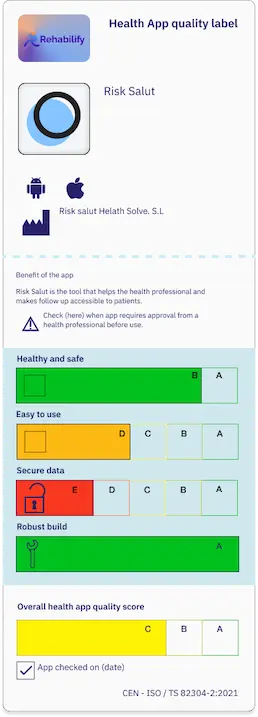Security and Privacy Compliance.
Certification within rehabilify has been defined and based on Label2Enable.
Label2Enable has been chosen because is one of the projects the European Commission has launched to contribute to an innovative, sustainable, and globally competitive health industry.
European standards are to ensure patient safety, quality of healthcare, effectiveness, interoperability, and productivity. Citizens, health care providers and health systems benefit from a swift uptake of health apps that significantly improve health outcomes. Health app manufacturers benefit from more efficiency in co-creating health apps that satisfy the needs of patients, health care providers and health authorities and regulators and accelerated time-to-market.
rehabilify platform supports data protection feature and compliance with GDPR. Ensure Data Protection by design and by default: Compliance to apply methodologies for data protection by design and by default as required by Art. 5 and 25 GDPR. Compliance to that applied methodologies of data protection by design and by default are in line with the Guidelines of the European Data Protection Board and the specific Guidelines of the national data protection authorities of the procurers' countries.
Health data is particularly sensitive information. It can identify individuals and reveal highly personal details of people's lives. Tracking health data can be necessary for the general wellbeing of people or to adequacy diagnoses and treat diseases. How health apps collect and use data can have profound implications for the individual and society as a whole. The development and governance of health apps therefore requires careful ethical consideration.
While this label focusses on the responsibilities of app manufacturers, it is important to note that the adherence to ethical principle is a shared responsibility between app manufacturers, deployers and end-users. Each party has to take appropriate and well-defined steps within their control.

